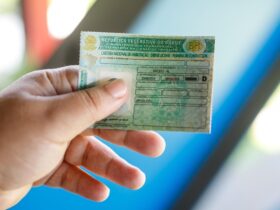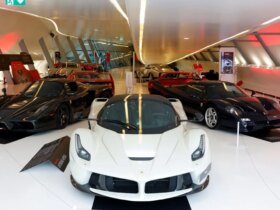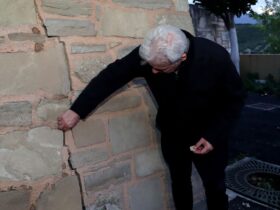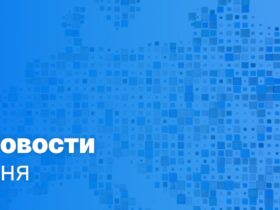The new motivation on this issue did not arise from the zero point, but at the same time as the visit of the US Middle East, the Middle East to Morganus in early April, which confirmed that Washington continues to insist on the full implementation of the end of the decision.
Israeli violations continue in southern Lebanon today. While diplomatic data indicate a decisive external decision to start the gradual stage of disarmament of the Shiite extremist group “Hezbollah”, starting from the south of the Litani River and ends with the coverage of the entire Lebanese territories, it takes attention to the official position of the Lebanese state, which has begun to go more clearly.
A few days ago, Levan Joseph President said that the state alone has the right to possess weapons, with a focus on “its conviction that the Lebanese did not want the war”, and declares that “the decision to restrict weapons for the state has been taken, and its implementation continues to depend on the favorable conditions.”
Hezbollah’s position was unambiguous. The Minister of General Sheikh Casem said that the idea of disarmament “must be removed from the dictionary,” noting that “the resistance is a natural reaction to the state’s inability to protect the Lebanese,” as he put it.
Khalifa Nasula added that the group’s weapons are not subject to discussion, with the exception of the dialogue point on the “National Defense Strategy”, which will not arouse only after Israel leaving Lebanese territory and the state will begin to restore what was destroyed during the war. Hezbollah leader Mahmoud Komati came to the point that he threatened that “the hand that reaches the weapon of the resistance will be cut.”
Despite the severity of the data, the contacts between Hezbollah and state institutions, led by the president, do not stop at an attempt to resume negotiations on the defense strategy as a starting point for the political solution to this issue.
In this tense context, as sovereignty considerations intersect with regional and international transformations, where pressure is strengthened, and the discourse is exacerbated, questions arise about the position of the Lebanese Shiites in these discussions. Are weapons still an element of protection for members of this society, or does it turn into a burden that prevents Levan’s stability?
In an attempt to understand this contradiction, Euronews conducted an interview with a number of Lebanese Shiites to find out their opinion on the specific issue of disarmament “Hezbollah”, as well as an expert in Arab and regional affairs to consider the scenarios of possible events.
Hezbollah weapons: protection or burden?
During the interview, we noticed a variation in opinions between those who still consider the weapon the main guarantee of national security, and those who consider it a burden, which has become very difficult for people, although opponents prefer to remain unknown, fear the reaction, or avoid possible consequences.
Hassan (a pseudonym) from the village in southern Lebanon says that in principle he does not object to the disarmament of Hezbollah, but he does not want this to happen as it is shown in the media or under international pressure. In an interview with Euronews, he said: “I defend the dialogue between the president and Hezbollah to study this existential issue. The weapon must be in the hands of the state, but it is necessary to use Hezbollah’s military experience, especially the residents of the border villages, because they know the important experience.
“The state’s lack of participation is what prompted the south of the country to take weapons against Israel.”
“It is necessary today that the state is really present in the border areas so that there is no need for any weapon outside its framework.” I am for the sake of “Hezbollah” to transfer its weapon, but gradually and rationally, not through provocations. “
Hadi (a pseudonym), a resident of a southern city that was bombed during the last round of the war, expresses a deep feeling of disappointment: “People lost their confidence in weapons as a means of protection.
“The condition is clear: the weapon must be only in the hands of the Lebanese army. There are sufficient wars. Even those who opposed the continued use of this weapon rarely express their opinion publicly – either fear of reaction, or because we are unaware unconsciously that there is no far from this reality. But we are tired … we reject an opportunity to try another experience.”
“What prevents us from confidence in our national army? The Lebanese army has repeatedly proves that it is the only structure that can protect everyone without discrimination. I condemn all attempts to provide it as a opponent to the south, while the fact is that it was the most difficult moments of its military personnel to provide assistance, analyze the ROM and continue the moloosge.”
Kavtar Yassin from the Bekaa region insists that Hezbollah’s weapons are not a sectarian weapon, but they are national support. She said: “It is sufficient to remember what happened at Beirut airport in 1982, when Israel burned our air fleet, and the state did not produce a single bullet. The resistance weapon was not present at that time, and the state was not bound by hand and feet. Today, this weapon has become the absence of any weapon that does not work.
Hezbollah weapons are not a weapon to protect a specific sect, but it is a shield for all Banus, and all religious groups and regions, because the enemy does not make the differences between sects and sectarianism, between the south, Pika and the north. Without this weapon, Israel will not be satisfied with five points, but it will occupy the entire Lebanon and interfere with its borders according to its historical aspirations. “
Massa Atii, from southern Lebanon, is categorically rejecting the idea of disarmament, because it “will play in the hands of the enemy and will aim to break the internal front and incite the sad strings.” She adds: “This weapon, which defended Lebanon and the opposition aggression, cannot be penetrated or moved under political pressure. Only Hezbollah’s weapons are protected, and this weapon is the red line.”
“This weapon was never a project for civil war, but its normal situation is to carry the Israeli enemy at a time when the Lebanese army does not have sufficient military capabilities to protect the south,” she says.
“The issue of disarmament from resistance cannot be dealt with as a transient version or a simple administrative decision. This is a question related to the dignity of the nation, the survival of people and the rule of the earth. I invaded ISIS head.
Analytical view: Do not transfer weapons without guarantees
Amin Camoria, a Lebanese journalist specializing in regional issues, explains the complexity of the issue of Hezbollah’s weapons, on the pretext that this movement does not object to the concept of arms restrictions. This depends on two main points: First, Hezbollah agreed to Resolution 1701, which directly stipulates the withdrawal of weapons from the region south of the Litani River and transferred it to state institutions; Second, the group has repeatedly declared its commitment to the Taif Agreement, which theoretically means that there are no weapons outside the framework of the state.
“There is already great cooperation between the party and the Lebanese army,” Camoria said, noting that what is happening now is an attempt to link this issue with the process of Israel’s departure from Lebanese territory.
There is a fundamental difference between the concept of disarmament by the force that Hezbollah and the state rejects, and the concept of “exceptional control of weapons by the state”, which is a common goal, but its implementation requires a political process, and he adds. It emphasizes that anyone is internal is that there is what is internal from the inside is to be from the inside that there is something internal that there is any person in which anyone from Lebanon will happen. The confrontation.
Camoria admits that the fibrous president is important by the United States in order to accelerate this process, but his position depends on a precise balance between external pressure and preventing slipping into the internal confrontation. “The president is embarrassing, but he does not want to enter the country in a new battle,” he said.
Against the background of this, Camoria notes that Iran’s role is still strong, and it is difficult to separate the issue of Hezbollah’s weapons from the Iranian negotiation process with Western powers. “Iran is still a major player and has many cards,” Camoria says.
He explains that these guarantees may include the following: the complete departure of Israel, the inability of Hezbollah’s financial resources and the restoration of what was destroyed by the war, whether they are the southern or southern suburbs in Beirut. He said: “If you want to take weapons, you must surrender in return. This is the equation that Hezbollah sets.”
Possible scenarios: Between pressure and prevention of the explosion
As for the texts that can be turned in the next stage, Kamuria does not rule out one chance.
1. Military escalation with Israel: Camore is the possibility that Israel will be able to resort to declining operations in some southern regions, under the pretext of fulfilling decision 1701 by force if he sees that the Lebanese state did not fulfill it.
2. The escalation of American pressure on Beirut: Camoria notes that Washington continues to pressure the state institutions, which can push some political opponents to the internal escalation. At the same time, it is believed that the majority of the Lebanese realized that a return to civil war is not a realistic choice. Despite the dangerous strikes it caused, Hezbollah is still the largest political and military force in Lebanon. I don’t think someone is ready to resist its military means from within. “
3. At this stage, Hezbollah may expect regional and international conditions to change in its favor – used this tactic more than once in the main political stages.
Camoria completes its analysis, stressing that it is considered the essence of the dilemma: “Israel does not need a strong Lebanese state, a strong army, or clear borders. It sets a fabric, then notes from afar,” and he is sure.












Leave a Reply